The Myth of Âu Cơ
Throughout its history, scholars agree that Vietnamese women had greater autonomy and assumed higher status than women in other East and Southeast Asian societies.
This is due to Vietnam’s origins as a matriarchal society, with the Mother Goddess religion playing a major role.
The religion itself can be traced back to the myth of Âu Cơ, an Immortal Fairy Bird and Lạc Long Quân, the son of the Dragon King.
After their union ended, Âu Cơ took fifty of her sons to the North, the eldest of them emerging as the first king of Âu Lạc, the first Vietnamese state.
This myth led to the development of Âu Lạc’s double kinship system, which combined matrilineal and patrilineal family structure and assigned equal importance to both lines.
Feminism Through The Ages
In 111 B.C., Chinese armies claimed Nam Việt, (an ancient kingdom covering parts of China and modern Vietnam), and integrated it into the Han Empire.
From then until AD 1427, imperial China ruled over Vietnam 4 times, however, China’s dominance was neither continuous nor stable.
Popular uprisings occurred frequently, with women playing a significant role in them, sometimes even leadership.
Influential Women In Việtnam
The famous Trưng sisters were among the most outstanding of these women. Trưng Trắc and Trưng Nhị, in 43 B.C, led an army of 80,000 with women generals, and successfully drove the Chinese from the country.
Similarly honoured was 19-year-old peasant Triệu Thị Trinh.
In A.D. 248, she led a rebellion against the Chinese and succeeded in achieving a short-lived independence for Vietnam
Confucianism in Việtnam
During Chinese occupation, Confucianism was the official ideology and remained relevant afterwards.
The Three Obediences and Four Virtues is among the sets of moral principles in Confucianism, which regulates a woman’s actions, speech and the men whom she must follow.
These principles were systematically imposed onto Vietnamese women, from imperial laws to family training odes, from village laws to idioms and folk poetries.
However, opposition to the Confucian ideology regarding women and their inferior status was often expressed in literary works.
One example was Nguyễn Du’s poetry epic Truyện Kiều, which became nationally popular and widely regarded as a masterpiece.
What’s remarkable about Truyện Kiều is the story’s ability to highlight the suffering of women while also attacking traditions of the decaying feudal society.
Notable Vietnamese Feminism
A well-known woman poet of the early 19th century was Hồ Xuân Hương, who broke grounds by writing about free love, unmarried mothers, and gender equality.
Her bold attacks on polygyny and the double standards of morality caused her works to be forbidden.
The Feminist Struggle For Liberation
Despite Confucian values persisting in Vietnam long after the withdrawal of the Chinese, countless Vietnamese women had risen up as icons of heroism against its cultural and political domination.
Given Vietnam’s matriarchal context, women’s struggles for liberation from Confucianist patriarchy can be seen as a metaphor for the entire nation’s struggle for Vietnamese independence.
Sources
[1]: Chiricosta, A. (2010). Following the trail of the fairy-bird: The search for a uniquely Vietnamese women’s movement. Women’s Movements in Asia: Feminisms and Transnational Activism, 125-143.
[2]: Jayawardena, K. (2016). Women reformists and revolutionaries in Vietnam. Feminism and nationalism in the third world, 196-213. Verso Books.
[3]: Nguyễn, T. V. (2014). The theory of Three obediences, Four virtues in Confucianism and its influence on Vietnamese women today. Ho Chi Minh National Academy of Politics.

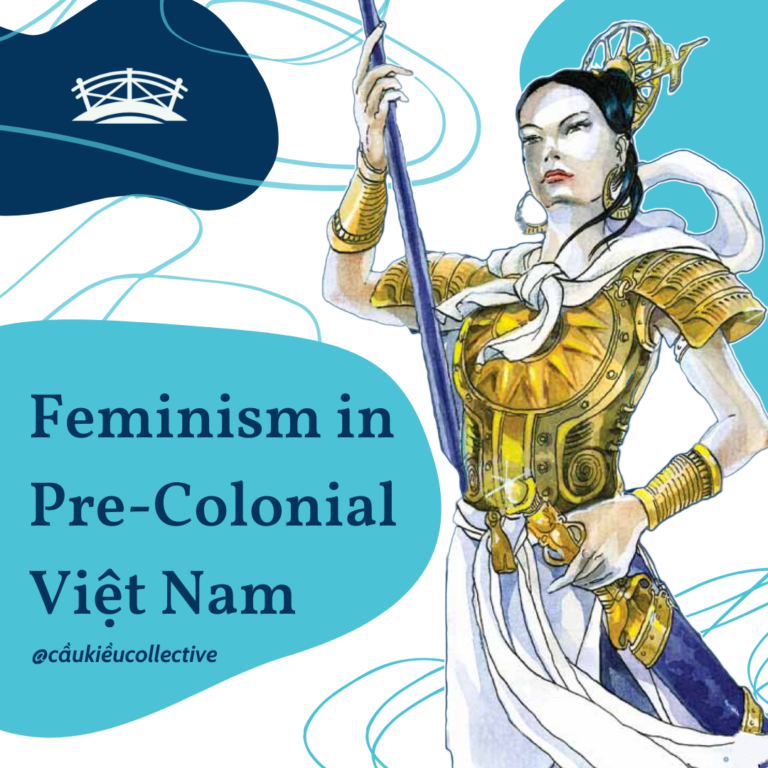
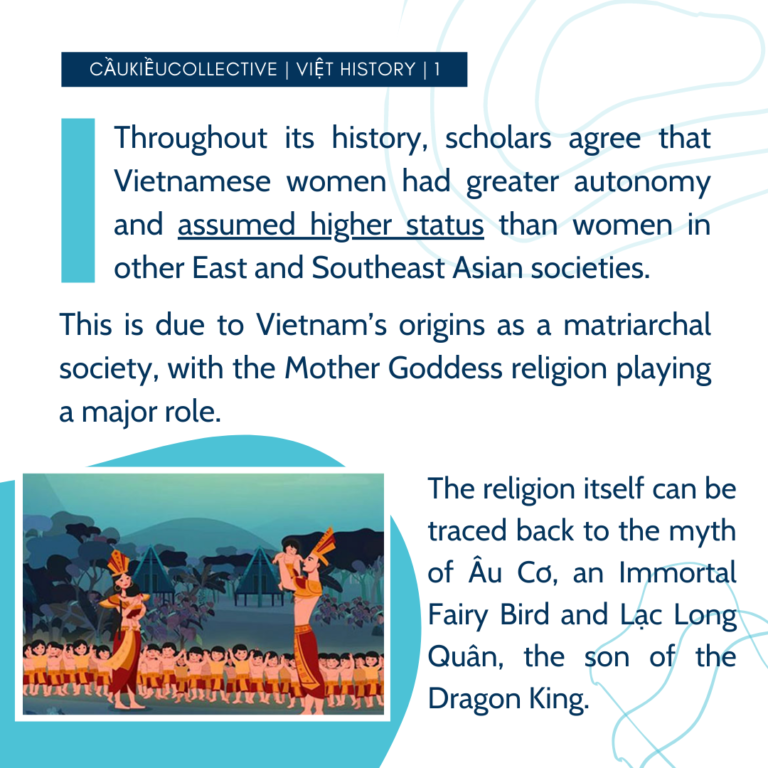
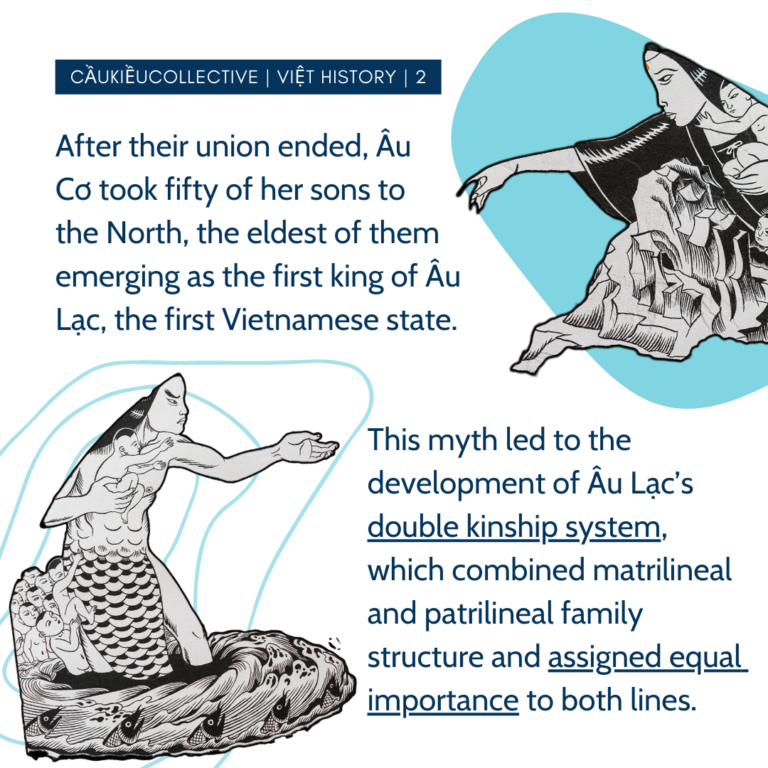
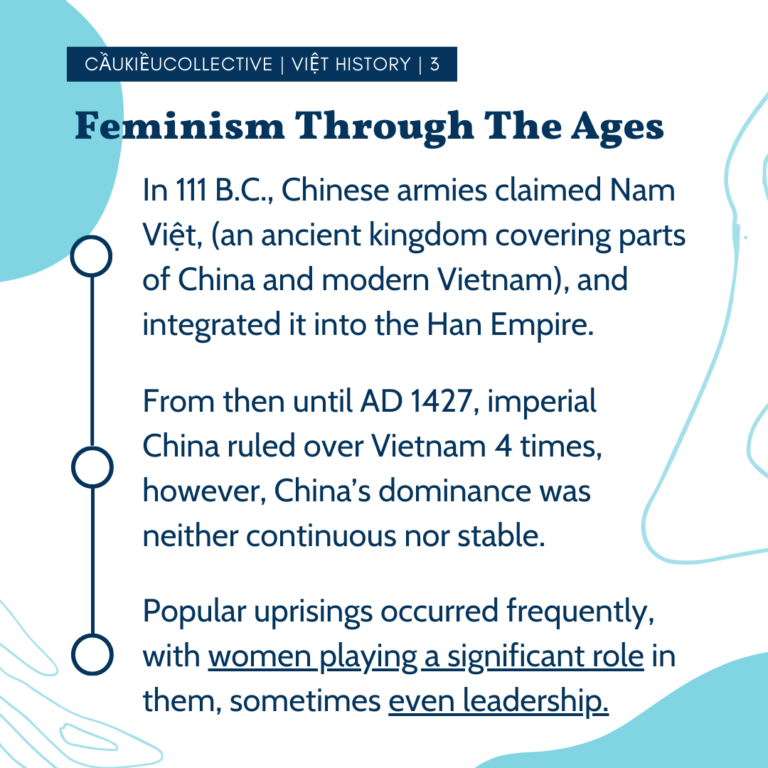
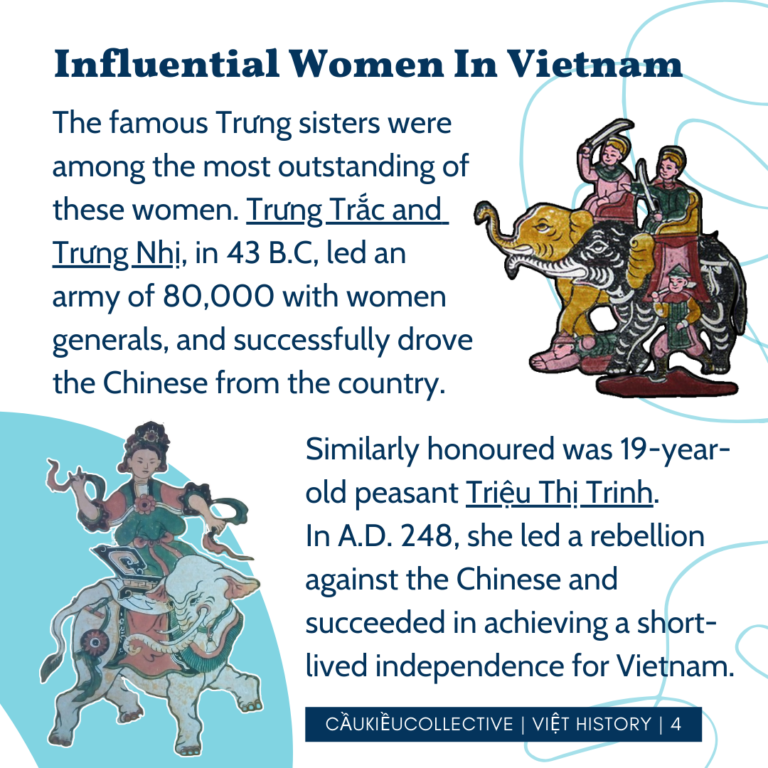
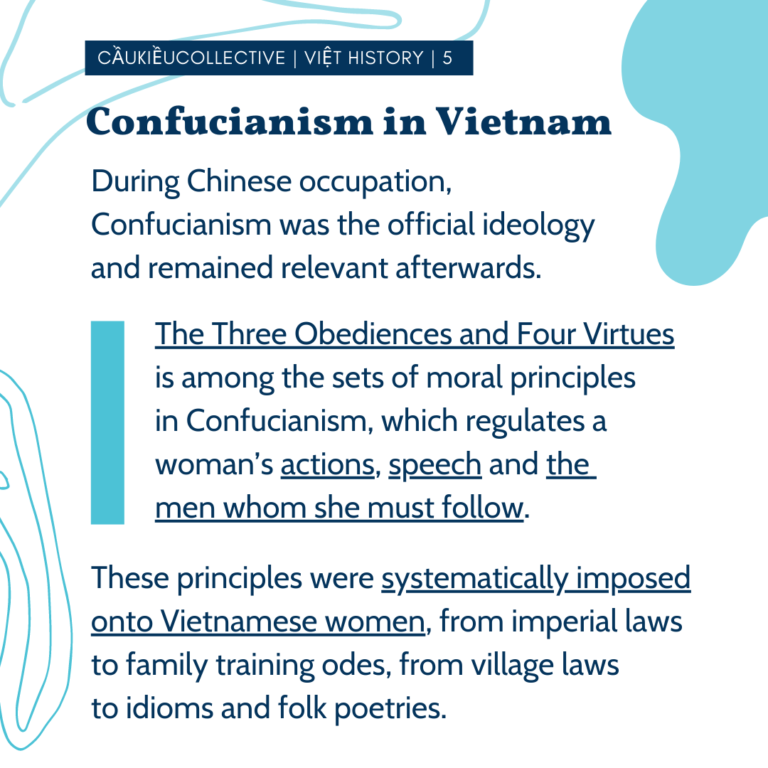
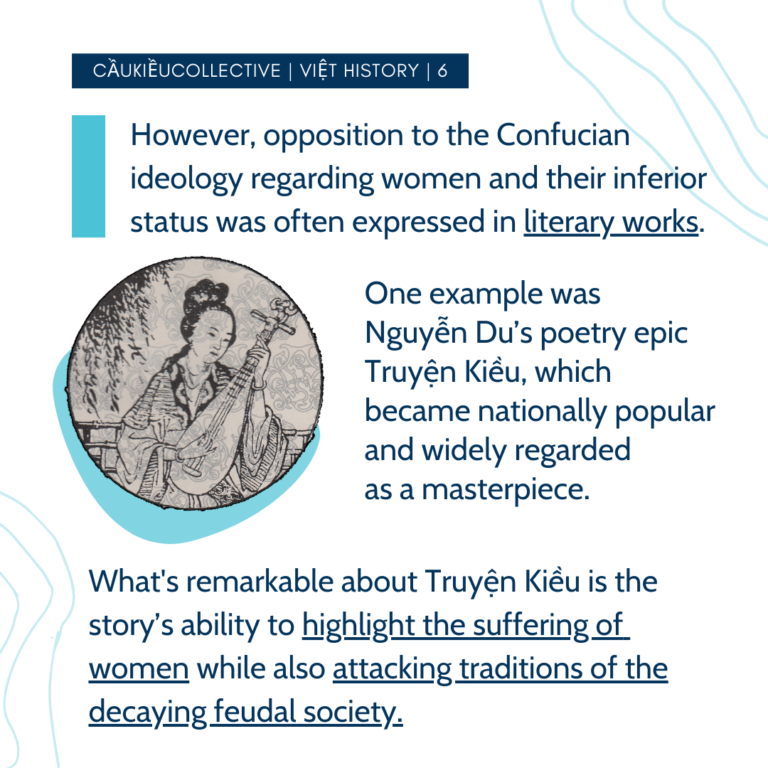
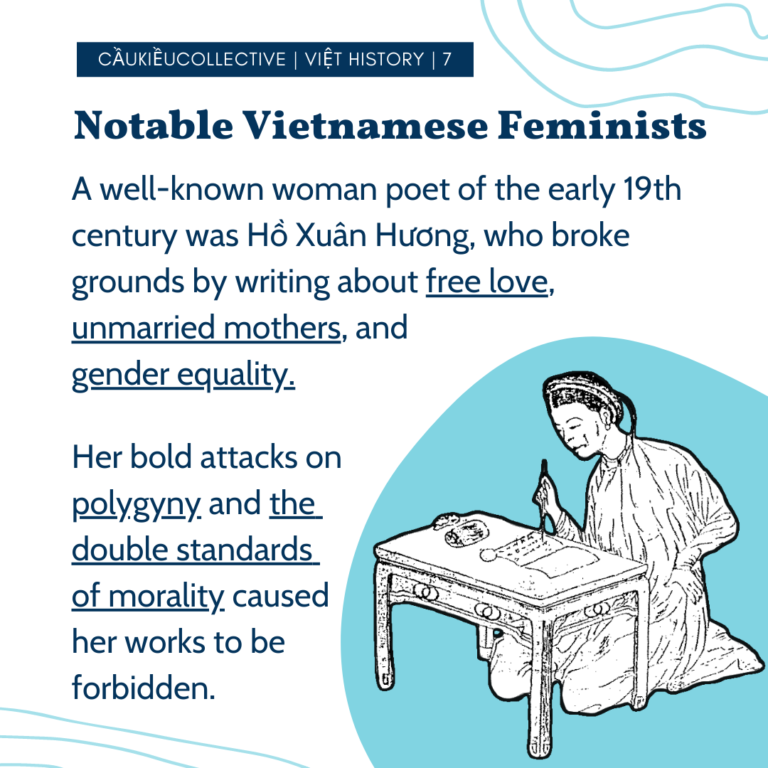
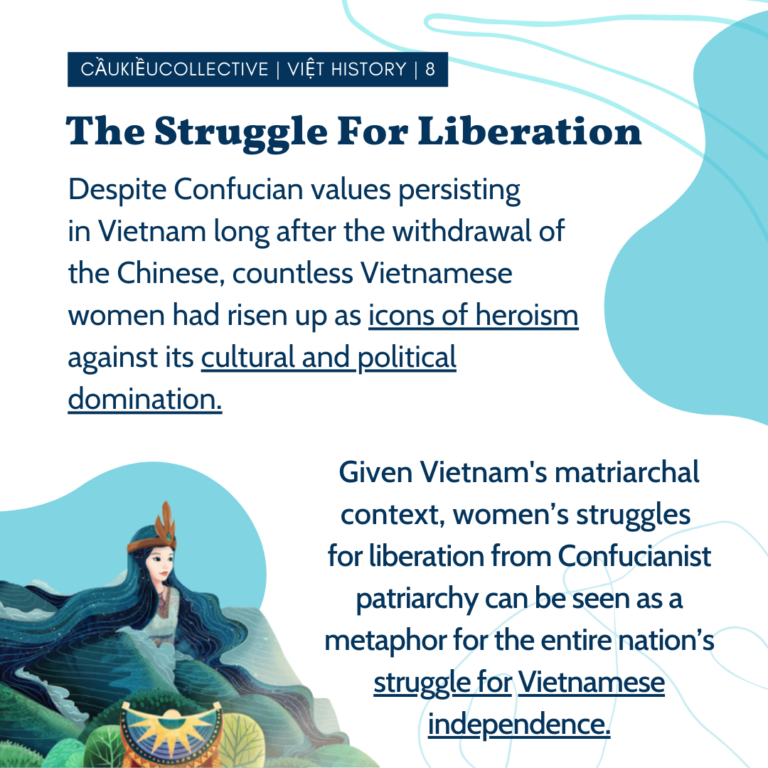
![Sources [1]: Chiricosta, A. (2010). Following the trail of the fairy-bird: The search for a uniquely Vietnamese women’s movement. Women’s Movements in Asia: Feminisms and Transnational Activism, 125-143. [2]: Jayawardena, K. (2016). Women reformists and revolutionaries in Vietnam. Feminism and nationalism in the third world, 196-213. Verso Books. [3]: Nguyễn, T. V. (2014). The theory of Three obediences, Four virtues in Confucianism and its influence on Vietnamese women today. Ho Chi Minh National Academy of Politics.](https://caukieucollective.com/wp-content/uploads/2021/09/10-3-768x768.png)